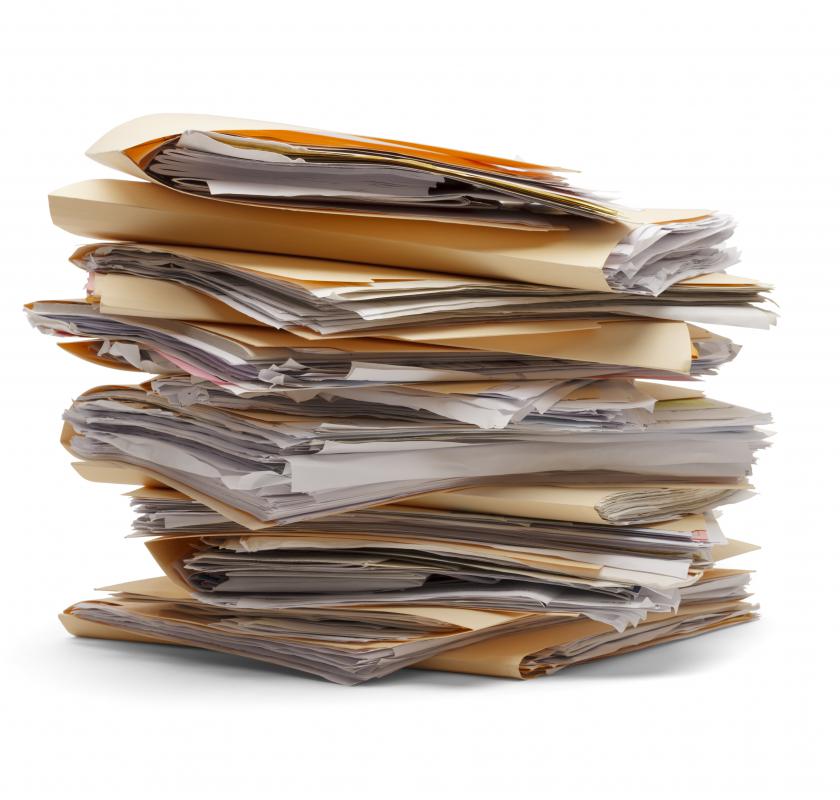At WiseGEEK, we're committed to delivering accurate, trustworthy information. Our expert-authored content is rigorously fact-checked and sourced from credible authorities. Discover how we uphold the highest standards in providing you with reliable knowledge.
What is a Subpoena for Documents?
A subpoena for documents is a command by the court that a person turn over a specific document or set of documents. It usually occurs during the discovery process before a trial. The court will command that the documents be turned over because it believes the documents are necessary to proving an element of a crime or civil suit, and thus should be turned over in the interest of justice.
There are several different types of subpoenas but each generally has the same procedure and results associated with it. Either a person suing or a person being sued will believe he needs information that is in the possession of someone else who won't turn it over. The person who needs the information will go to the judge and request that the judge compel or make him turn it over. The judge will review the reason behind why the information is needed and the reasonableness of the request and determine whether to issue a subpoena.

The subpoena will then be served on the person who has the requested information. That person will be required to comply with what the subpoena asks him to do. If it is a subpoena for documents, for example, he will have to produce and turn over those documents. If he does not comply with the terms in the subpoena, he can be held in contempt of court, and/or tried for obstruction of justice. In either case, he might face penalties or even jail time.

In order for a subpoena for documents to be issued, generally the documents must belong to one of the parties involved in the case or must belong to a person or entity with significant involvement in the case. For example, an individual could not subpoena his neighbor's tax records just because he wants to prove to the county that his taxes are too high in comparison to his neighbor's. On the other hand, a person suing his neighbor for fraudulently stealing from him could potentially subpoena documents that prove the theft, such as bank statements, if he had sufficient evidence to convince a judge the bank statements would contain the evidence of fraud.

In addition to the subpoenaed party having a relationship with the case, the subpoena for documents must be reasonable and the information must not be privileged. For example, a party cannot request the judge subpoena someone to turn over every bank transaction he has ever made, because to do so would be cost prohibitive, time consuming and unnecessary. Likewise, a subpoena for documents cannot require a person to turn over privileged communications between an attorney and client since such documents are protected under the law.
AS FEATURED ON:
AS FEATURED ON:













Discussion Comments
How common is it for a judge to reconsider his ruling almost immediately after making it and summoning the parties back to court?
Post your comments